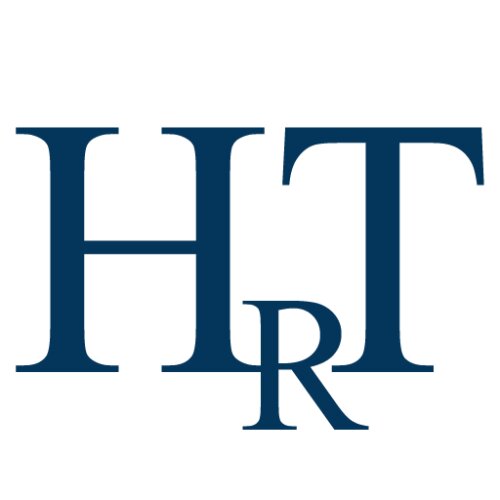Best Whistleblower & Qui Tam Lawyers in Schaffhausen
Share your needs with us, get contacted by law firms.
Free. Takes 2 min.
List of the best lawyers in Schaffhausen, Switzerland
About Whistleblower & Qui Tam Law in Schaffhausen, Switzerland
Whistleblower and qui tam laws are designed to protect individuals who report misconduct or fraud, often within organizations, and allow them to seek a portion of any financial recovery. In Switzerland, whistleblower protection is evolving, with legislative efforts aimed at safeguarding individuals who disclose unethical or illegal activities. Schaffhausen, like other cantons, adheres to federal guidelines while also considering local regulations. Although the Swiss legal framework does not fully align with the comprehensive whistleblower protections seen in other countries, there remains significant scope for reporting unethical practices, especially within areas that impact public or federal interests.
Why You May Need a Lawyer
Legal assistance is vital when navigating whistleblower and qui tam actions due to the complexity of these cases. Common situations that necessitate a lawyer include:
- Understanding your rights and protections as a whistleblower
- Ensuring the confidentiality of your identity
- Assessing the strength and credibility of your case
- Guiding you through the legal process while minimizing risks
- Maximizing potential financial rewards for successful claims
- Defending against any possible retaliation or legal repercussions
Local Laws Overview
While federal guidelines outline the basic framework for whistleblower actions, the canton of Schaffhausen follows specific legal principles that enhance protection and process efficacy. Key aspects include:
- Federal Labor Law: Offers a baseline for protecting employee rights when reporting misconduct.
- Data Protection Laws: Ensure any disclosed information is handled with strict confidentiality.
- Criminal Procedure Code: Addresses the obligations of individuals to report certain types of criminal activities.
- Specific Industry Regulations: Sectors like finance or healthcare may have additional rules related to misconduct reporting.
Frequently Asked Questions
What is the purpose of whistleblower protection?
The primary objective is to safeguard individuals from retaliation who report illegal or unethical practices within an organization.
Who qualifies as a whistleblower in Schaffhausen?
Any individual aware of and reports misconduct related to public or federal interests can be considered a whistleblower.
How can I ensure my identity remains confidential?
Working with a lawyer can help establish legal measures to protect your identity during the legal proceedings.
What type of activities should be reported under qui tam?
Activities typically include fraud against the government, such as financial fraud, embezzlement, or corruption.
Can I file a whistleblower complaint anonymously?
While anonymity can be challenging to maintain, legal processes aim to protect identities as much as possible.
Are there any financial incentives for whistleblowers?
In some successful qui tam cases, whistleblowers may receive a share of the recovered funds.
What should I do if I face retaliation for reporting?
Consult a lawyer immediately to explore protective measures and possible legal action against retaliation.
Is there a time limit for filing a whistleblower claim?
Yes, time limits apply but vary depending on the nature of the case; legal advice can clarify these.
Do whistleblower protections apply to private sector cases?
Protections often focus on public interest cases, but private sector scenarios can sometimes qualify, particularly if regulations are breached.
What legal standards apply to the evidence I need to provide?
Evidence must be credible and legally obtained; a lawyer can advise on meeting these standards.
Additional Resources
For more information on whistleblower and qui tam laws, consider contacting the following:
- Swiss Federal Office of Justice: Provides information on federal legal guidelines.
- Data Protection and Information Commissioner of Schaffhausen: Offers specific guidance on confidentiality and data handling.
- Local Legal Aid Societies: Provide resources and initial guidance for those unable to afford private legal counsel.
Next Steps
If you require legal assistance in whistleblower and qui tam matters, consider the following actions:
- Document all relevant information and evidence related to your case.
- Reach out to a qualified attorney with experience in whistleblower law.
- Seek a consultation to understand potential legal pathways and protections.
- Learn about any applicable legal aid if financial constraints exist.
- Maintain confidentiality until you have legal representation.
Lawzana helps you find the best lawyers and law firms in Schaffhausen through a curated and pre-screened list of qualified legal professionals. Our platform offers rankings and detailed profiles of attorneys and law firms, allowing you to compare based on practice areas, including Whistleblower & Qui Tam, experience, and client feedback.
Each profile includes a description of the firm's areas of practice, client reviews, team members and partners, year of establishment, spoken languages, office locations, contact information, social media presence, and any published articles or resources. Most firms on our platform speak English and are experienced in both local and international legal matters.
Get a quote from top-rated law firms in Schaffhausen, Switzerland — quickly, securely, and without unnecessary hassle.
Disclaimer:
The information provided on this page is for general informational purposes only and does not constitute legal advice. While we strive to ensure the accuracy and relevance of the content, legal information may change over time, and interpretations of the law can vary. You should always consult with a qualified legal professional for advice specific to your situation.
We disclaim all liability for actions taken or not taken based on the content of this page. If you believe any information is incorrect or outdated, please contact us, and we will review and update it where appropriate.










